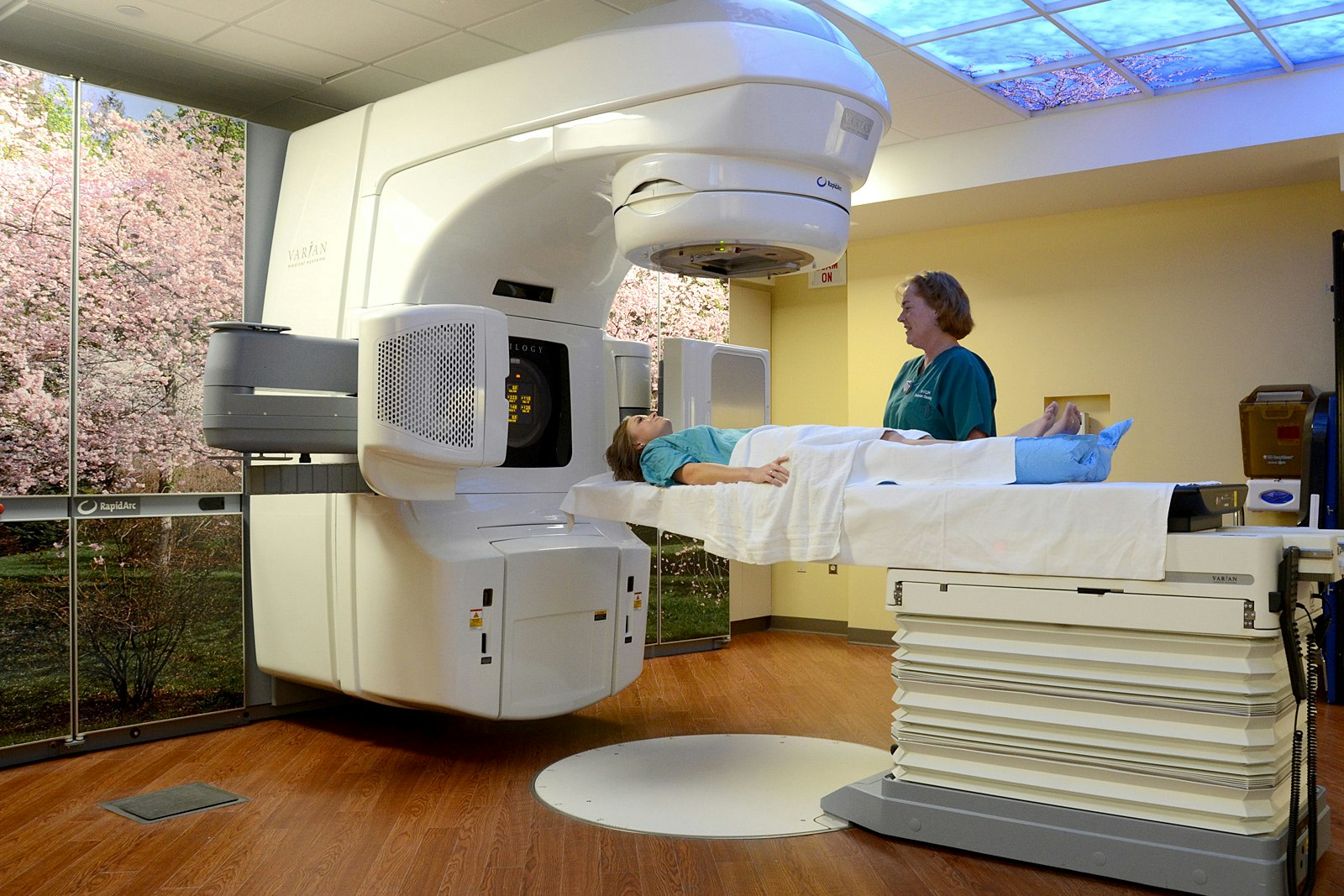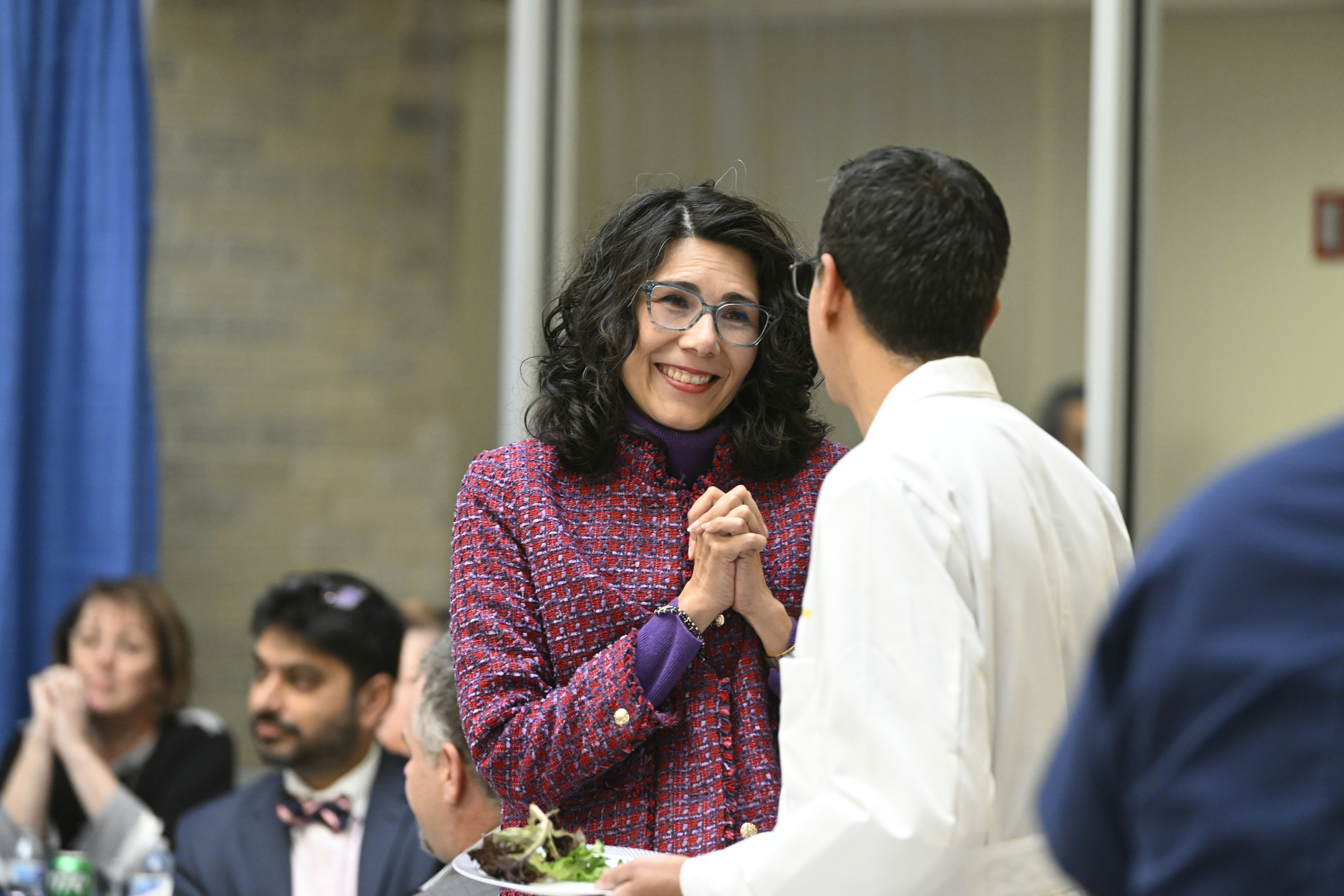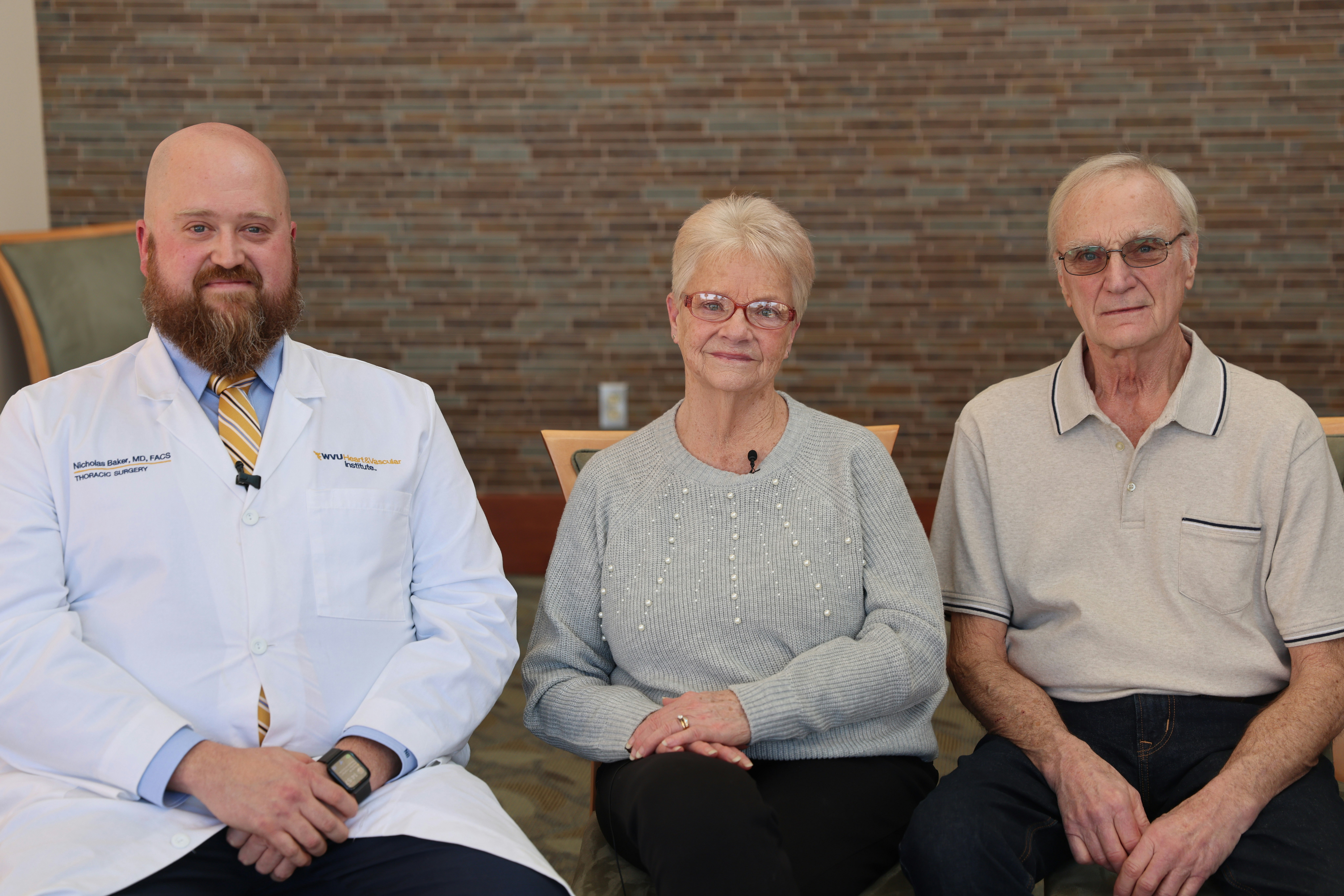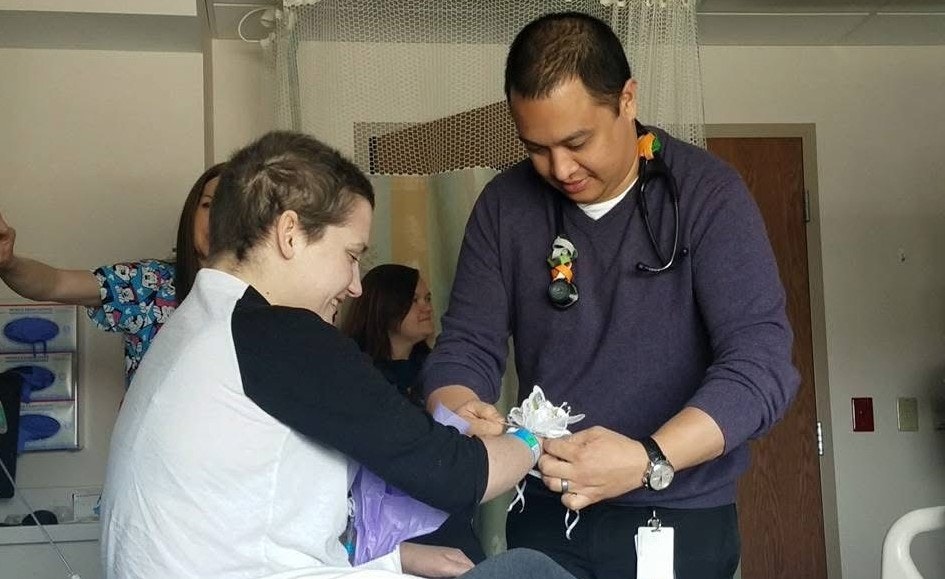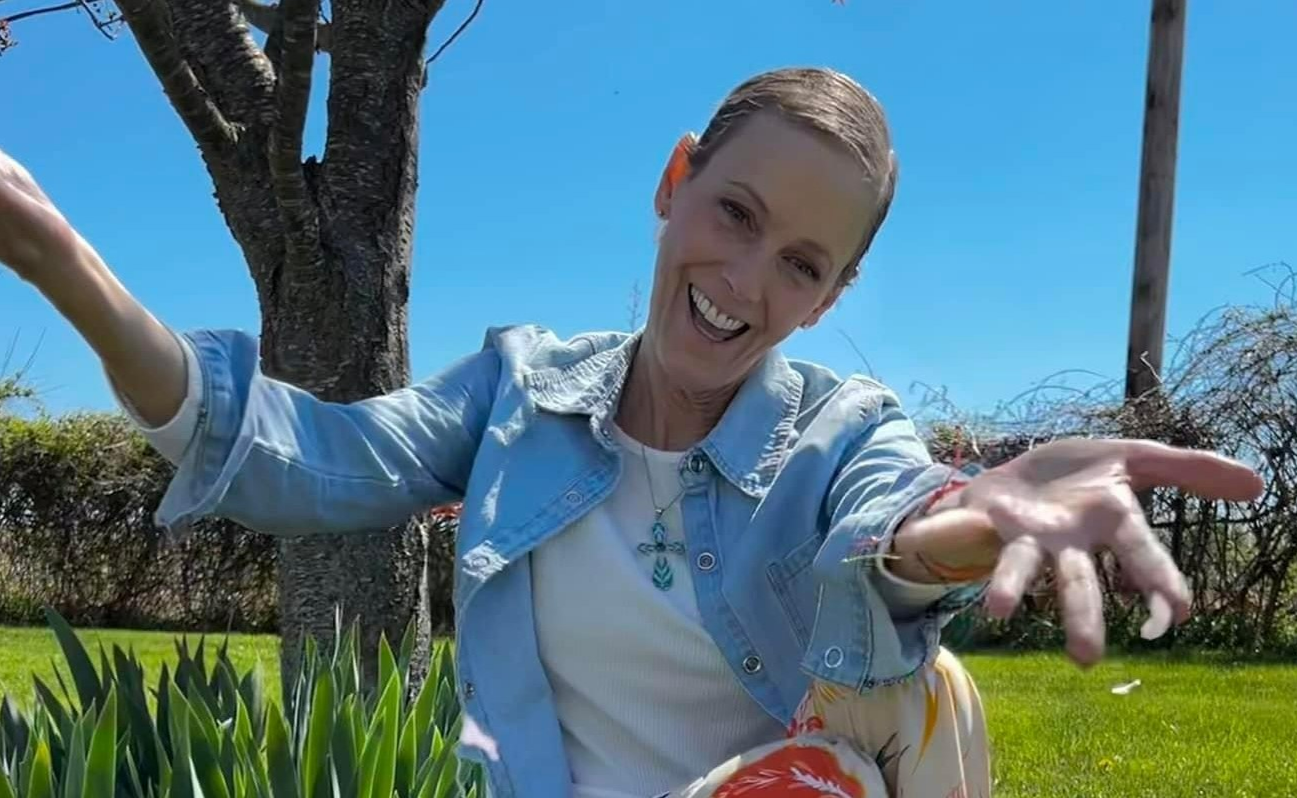Colon and rectal cancer (colorectal) diagnoses are on the rise. Each year in the United States, there are more than 106,970 colon cancer cases, 46,050 rectal cancer cases, and 26,500 gastrointestinal cancer cases diagnosed. We work with patients to prevent cancer and to identify it early.
Our gastroenterology clinic offers you a state-of-the-art facility where you’ll find easy access to the care you need. Our facilities and environment are warm and welcoming. The unique clinic allows patients to see surgeons and oncologists, genetic counselors, social workers, and clinical trial specialists during the same appointment and under one roof. This is an advantage of our multidisciplinary approach.
Our compassionate team gets to know you and your specific needs. We offer screening and diagnostic imaging services, along with treatment and survivorship care.
We’re proud to have been nationally recognized as high performing by U.S. News & World Report for our Colon Cancer Surgery Program.
Types of Colon and Rectal Cancers We Treat
Colorectal cancer starts in the colon or the rectum, usually in the inner lining with the growth of a polyp. It’s important to know that not all polyps are cancerous. There are many different types of colorectal cancers, and we treat them all using the most advanced techniques.
Adenocarcinoma
It is a type of cancer that starts in cells that form glands making mucus to lubricate the inside of the colon and rectum. This is the most common type of colon and rectum cancer.
Gastrointestinal carcinoid tumors Hormone-making cells often cause these tumors to start in the lining of the gastrointestinal tract.
Gastrointestinal stromal tumors
This type of cancer starts in interstitial cells (cells in the spaces between the functional cells of a tissue) within the colon wall, and some are not cancerous. These tumors can be found anywhere in the digestive tract.
Lymphomas
These are cancers that involve the immune system cells. Lymphomas tend to start in lymph nodes, but they can also begin in the colon or rectum.
Squamous cell carcinomas
This type of cancer is the main type of anal canal cancer. It forms in cells that line the anus and is a rare malignancy for colon or rectum cancer.
Diagnosing Colon and Rectal Cancers
There are different ways to diagnose colon and rectal cancer. You should talk with your doctor if you experience pain or blood in your stool. Noncancerous conditions can also cause symptoms. We will talk with you about any necessary screenings to determine the next steps.
Our colorectal cancer experts use many different screenings and tests to determine colon and rectal health. We offer the latest approaches to diagnosing cancer, including:
- Advanced imaging — Doctors use ultrasound, CT, MRI, and PET scans to detect signs of disease and see whether cancer has spread to other areas of your body, such as your lymph nodes, liver, or lungs.
- Biopsy — Doctors use this test to examine tissue under a microscope to determine whether cancer is present. A small sample of tissue is removed from the tumor site to analyze in a lab. Biopsy results help oncologists make a definitive diagnosis of cancer type and plan the best treatment for you. There are several different biopsy types, including image-guided biopsy; fine-needle aspiration biopsy; core needle biopsy; and excisional, shave, and endoscopic biopsy.
- Colonoscopy — This exam is the gold standard in screening for colon cancer and is used to detect changes or abnormalities in the colon and rectum. This test uses a long, flexible tube (colonoscope) with a tiny video camera on the tip to allow doctors to see inside the entire colon.
- Physical exam — Doctors use a physical exam to look for signs of something going on in your body, such as the presence of a tumor. These can include skin color changes, enlargement of an organ, or lumps in your lymph nodes.
- Visual and stool-based tests — Doctors use these tests to look at the colon and rectum structure to see if any abnormal areas are present. This is done with a scope or with special imaging. Tests can include a fecal immunochemical test or a guaiac-based fecal occult blood test to test for hidden blood in the stool.
Treatment for Colon and Rectal Cancers
Our compassionate team of colon and rectal cancer experts designs a treatment plan that addresses your specific needs. We consider many factors when planning for your treatment. These include the cancer type, the location and size of the tumor, your age, and whether the cancer is new, recurrent, or metastasized (spread).
We often treat colon and rectal cancers using surgery, radiation therapy, and chemotherapy. Our patients also have easy access to high-quality imaging studies, endoscopic imaging and interventions, and state-of-the-art interventional radiology procedures. We offer the latest treatments, including:
- Medical oncology — Medical oncology includes chemotherapy, immunotherapy, targeted therapy, and hormone therapy. Our doctors use the latest in anti-cancer medicine to destroy cancer cells. We also use medicines to slow cancer growth and shrink tumors before surgery. Sometimes, we use medication alongside other treatments such as radiation or after surgery to destroy any cancer cells that might remain.
- Radiation oncology — We use radiotherapy treatments to target, destroy, and shrink many types of cancers. The treatments use a linear accelerator to produce precise, high-energy rays that target the exact area of cancer and spare healthy cells. Radiation oncology includes 3D conformal radiotherapy, image-guided radiation therapy, intensity-modulated radiation therapy, intraoperative radiation therapy (IORT), and brachytherapy.
- Surgery — Surgery can help us diagnose and treat many tumors. We also use it to relieve symptoms caused by tumors that press on a nerve, bone or the bowel. Our surgeons offer the latest minimally invasive and robotic surgical approaches.
Resources for Colon and Rectal Cancers
We believe cancer care goes beyond the medical diagnosis and treatment. That’s why each person can access many resources that may help answer questions and connect you to others.
